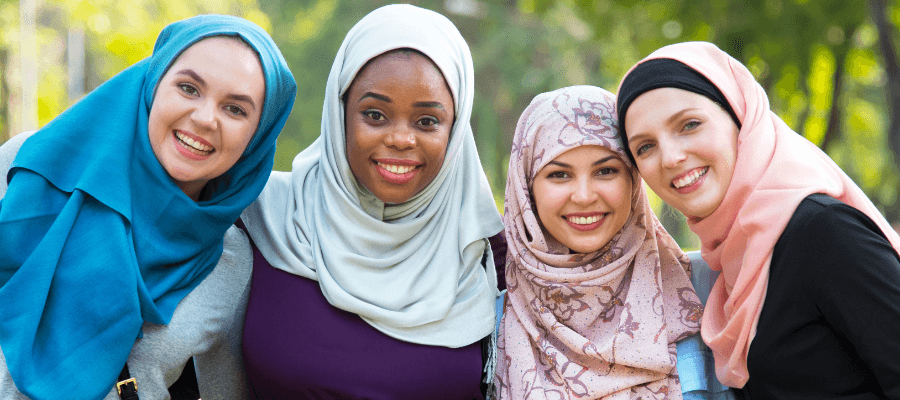British Muslims are the most generous group in the UK – how can fundraisers engage them?
Blue State’s essential report shows that UK Muslims gave four times more in the last 12 months than the average British person. But what does this mean for charities?
- Written by
- Jasmine Miah
- Added
- May 13, 2024

Last month at Blue State, we published a valuable piece of research for fundraisers like you. It found British Muslims are the most generous group in the United Kingdom (UK), and give more than four times as much money to charity as the average British person.
The donation numbers were astonishing. British Muslims gave an average of £708 in the past year, compared to £165 for the UK population as a whole. And that’s the average – some in higher income brackets gave significantly more. This is despite evidence that Muslims in the UK are more worried about unemployment and job security than the British average. Muslims in the UK are also twice as likely as the average British person to raise money via community events (such as bake sales) and via personal challenges such as running marathons.
While giving money to charity is a core pillar of Islam, these results reflect a community going above and beyond.
The research was undertaken after we saw hints of this generosity in our 2023 survey – but the numbers involved were too low for us to be categorical about our findings. However, this year, we spoke to more than 1,000 Muslims in the UK, alongside two focus groups with British Muslims, to learn more about specific giving behaviours.
Our research shows that almost a third of Muslims in the UK (29 per cent, equating to approximately 760,000 people) give more in Sadaqah – general charity donations – than they do in Zakat. Another 43 per cent, or just over a million people, donate just as much as their Zakat contributions over a year.
So what does this mean for charities and fundraisers like you?
1. Think outside Zakat
As the data above clearly shows – you don’t have to have a Zakat offering to reach Muslim donors. People are giving all year round.
We ran two focus groups alongside the survey, and as the group participants said:
‘For us… this is a year-round consideration. It’s our duty as those who have enough. If it was done properly, then there would be enough. Everyone would be catered for. Everyone would have what they need.’
2. Muslims are open to giving to all charities – so work out what you need to appeal to this generous group
There can be a perception that Muslim donors only give to Muslim charitable organisations. But that’s not the case. Yes, Muslim organisations are popular, but donors are also open to giving to secular charities – especially younger Muslim donors. As it stands, one in two are open to donating to secular organisations but only one in seven are currently doing so.
In fact, almost every category of causes received disproportionate generosity from the Muslim community in the UK, with two main exceptions – health and medical research, and animal welfare.
Looking at the survey results, the most significant factor which moved Muslim donors to give, was whether charities could provide transparency and openness about where their money was going – including overheads. And frankly, that’s something all charities should be thinking about, for donors of all demographics.
3. Find authentic ways to meet these donors where they are
British Muslims want to give – and charities need to find authentic ways to meet that.
Many charities are worried about how they would come across to Muslim donors, how to run a Ramadan appeal, or about seeming inauthentic.
But step away from that, from worries about language, and look at the fundamentals - transparency, trust, and clarity about where money is being spent are what our survey respondents said mattered the most.
Yes, in the long-term many organisations may be able to start a Zakat fund. But this is complex. It will likely involve partnership and collaboration with Islamic scholars and institutions to build trust that funds are handled correctly. Until then, or instead of this approach, you can also do more right away in communications that will speak to this hugely generous section of the British population.
4. Reach out
British Muslims are donors who give all year round – and are likely some of any organisation’s most active and generous supporters.
It’s important to think about how your organisation can meet the needs of this community, not only how donors of faith may be an opportunity for your organisation. Treat people like partners in the process and not as the next opportunistic segment and they will respond in kind. Your work is your hook – show how it is achieved and how it helps people. It might just be as easy as that.
To find out more about how these latest findings could impact your fundraising, download the complete report here. Myself and my team at Blue State are happy to chat if you need us.
IMAGES © Canva


















